2025.10.01
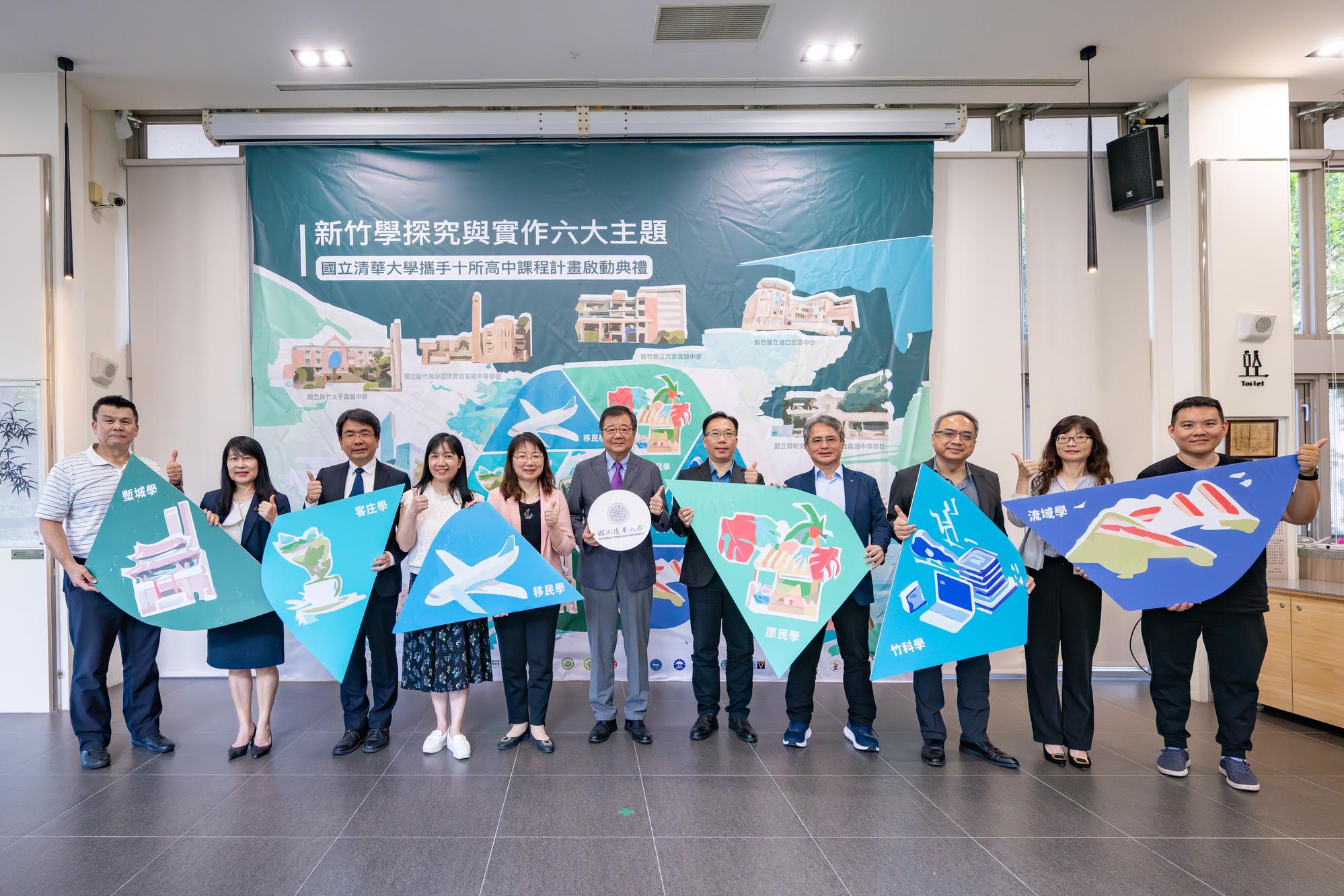
NTHU has partnered with ten high schools to launch the “Hsinchu Studies” exploratory and practical program. NTHU Vice President Ping-Chiang Lyu (呂平江, center front), together with the principals of the participating schools, officially announced the project.
National Tsing Hua University (NTHU) in Taiwan officially launched the pioneering “Hsinchu Studies” (新竹學) exploratory and practical program, partnering with ten local high schools.
The program features six thematic modules—Hsinchu Town Studies, Hsinchu Science Park Studies, Drainage Basin Studies, Hakka Studies, Indigenous Studies, and Migration Studies. It encourages students to go beyond textbooks and engage in hands-on, place-based learning.
Participating schools include Hsinchu Liou-Jia Senior High School, National Hsinchu Chutung Senior High School (CTHS), the National Experimental High School at Hsinchu Science Park (NEHS), Hsinchu Municipal Hsiang Shan Senior High School (HSHS), Hsinchu Municipal Chien-Kung Senior High School (CKSH), Hsinchu County Hukou Senior High School, National Hsinchu Girls' Senior High School, the Affiliated Senior High School of National Yang Ming Chiao Tung University in Hsinchu, Hsinchu Shu-Guang Private Girls' Senior High School, and National Hsinchu Kuan-Hsi Senior High School.
Building a Collaborative Learning Network
Professional Committee Member at the K-12 Education Administration, Ministry of Education, Hsiu-Chih Yi (易秀枝), praised the program for embodying the spirit of Taiwan's Twelve-Year Basic Education, highlighting high school as a critical stage for interdisciplinary thinking and self-exploration.
She emphasized that leveraging university resources for place-based learning broadens students' horizons and helps narrow urban-rural divide. She also commended NTHU's collaboration with schools and industry as a model for educational innovation and sustainable talent development.
Vice President of NTHU, Ping-Chiang Lyu (呂平江), expressed gratitude to the Ministry of Education for supporting the program and noted that the “Hsinchu Studies” initiative reflects NTHU's commitment to integrating social responsibility and sustainability into education.
The initiative builds a collaborative network by linking local government, community organizations, industry, schools, and university research to foster sustainable development in Hsinchu.
Program Motivation and Challenge
The Director of the “Hsinchu Studies” initiative, Tien-Chien Lee (李天健), pointed out that the industrial transformation of Hsinchu has widened the urban-rural divide. He noted that the program aims to recruit and train about 60 high school students as a pilot cohort.
“We hope students will go beyond textbooks to understand their hometown's history and current challenges, and in the process cultivate analytical and practical skills to become seeds of social sustainability,” he said.
Facing the challenges of the AI era, enrollment in social studies classes in Hsinchu has declined, making it difficult to nurture talent in the humanities and social sciences.
Lee emphasized that this issue cannot be solved by a single university; inter-school collaboration allows more students to explore opportunities in the humanities and social sciences. He also noted that “Hsinchu Studies” has plans to gradually extend the program to elementary and junior high schools.
Course Structure and Overview
The curriculum follows a “learning by doing” approach. A kickoff camp in November will help students explore their interests, followed by formal courses beginning in December based on the students' performance and preferences.
The selected 10th- and 11th-grade students will study the modules over three semesters in teams of three students; they will undertake projects that put their knowledge into action and present the results each semester.
The modules trace Hsinchu's history and cultural transformation, from late Qing dynasty tea and camphor production to its present-day status as a semiconductor hub, helping students understand the local context as well as contemporary challenges.
Hands-on Learning and Teacher Insights
Teachers reported an immediate impact on student engagement. A teacher at National Chutung Senior High School (CTHS), Chung-Mei Han (韓中梅), noted that many students grew up near the Touqian River but knew little about it. Through the Drainage Basin Studies module, students conducted field research and transformed themselves “from observers into protectors.”
A teacher at Shu-Guang Private Girls' Senior High School, Shih-Hsuan Chan (詹世軒), emphasized that Hsinchu is a city where tradition meets modernity. The Hsinchu Science Park Studies module enables students to explore cultural heritage and examine the social issues underlying technological development through site visits, interviews, and project-based learning.
Industry Partnership and Future Impact
Several companies, including the Vanguard International Semiconductor Corporation (VIS), the Zyxel Foundation, the SYNTEC Group, and the United Microelectronics Corporation (UMC) Culture & Education Foundation, have provided resources and support for course development, mentorship, and hands-on opportunities.
The Deputy Plant Director of VIS, Yuan-Sheng Chou (周原生), emphasized that the company will offer internships, career talks, and company visits for students to learn about hands-on industry practices and broaden their perspectives.
The Chief Operating Officer and Chief Sustainability Officer of the Zyxel Group, Jin-Lan Lin (林錦蘭), emphasized that integrating humanities and social sciences with STEM education is essential for sustainability.
The Senior Director of UMC, Kuang-Kai Tou (杜光凱), introduced the concept of the “City as Classroom.” He emphasized that through the “Hsinchu Studies” program, the company will collaborate with NTHU and local high schools to foster stronger connections to the land, helping more “new Hsinchu residents” develop a sense of identity and belonging.
The Director of the New Generation Education Foundation at the SYNTEC Group, Ming-Jie Yeh (葉閔傑), noted that the program strengthens the foundation's long-term commitment to local education and enriches the local curriculum through collaboration across multiple schools.
Through cross-sector collaboration, the “Hsinchu Studies” initiative not only enriches local education but also helps equip a generation of students to integrate tradition, innovation, and sustainability for the future of Hsinchu.
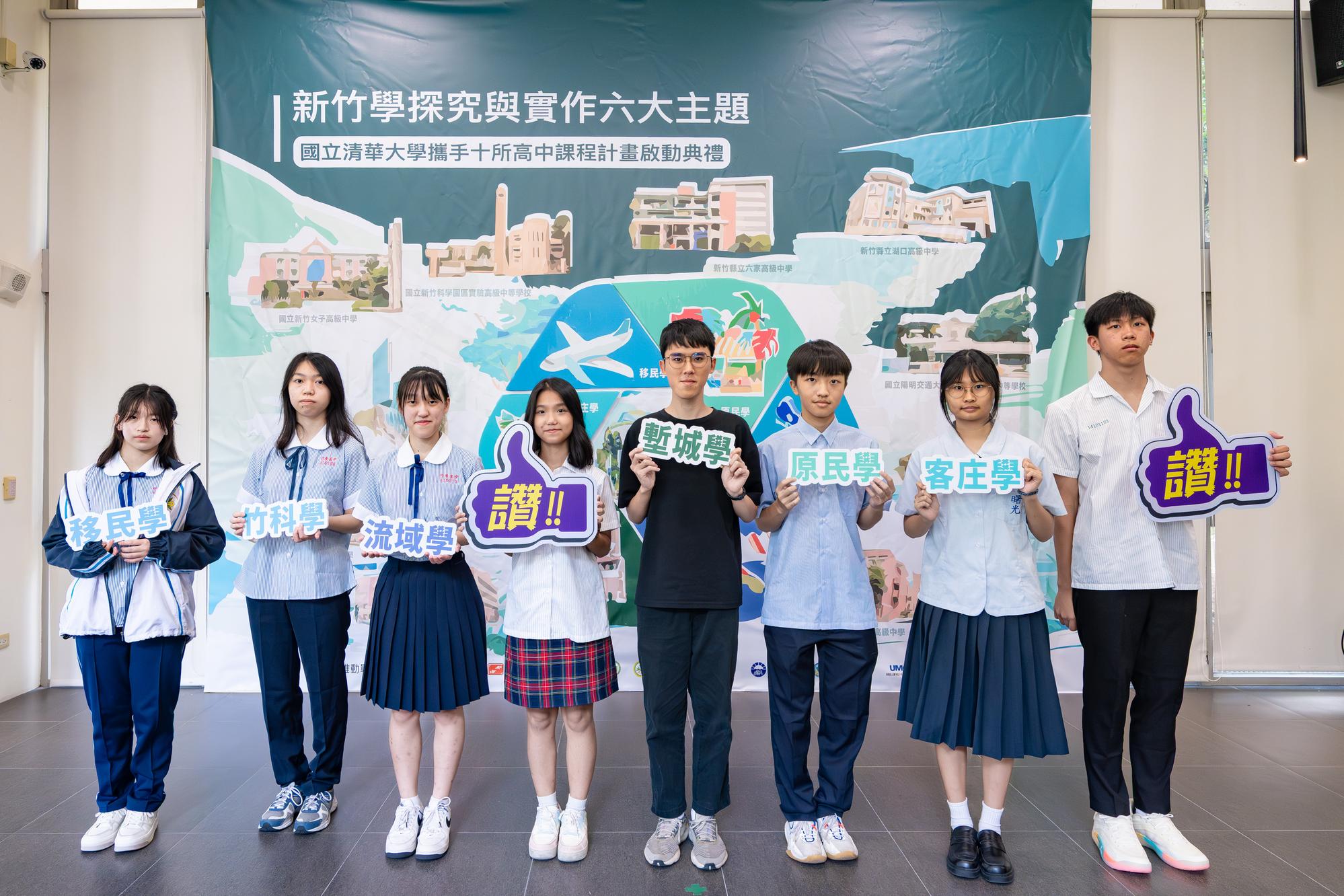
At the opening ceremony, NTHU student Chen-Hao Hu (許宸豪, fourth from right) joined representatives from across Hsinchu. The event highlights the dedication of the younger generation to sustainability and community care through their commitment to “Hsinchu Studies.”
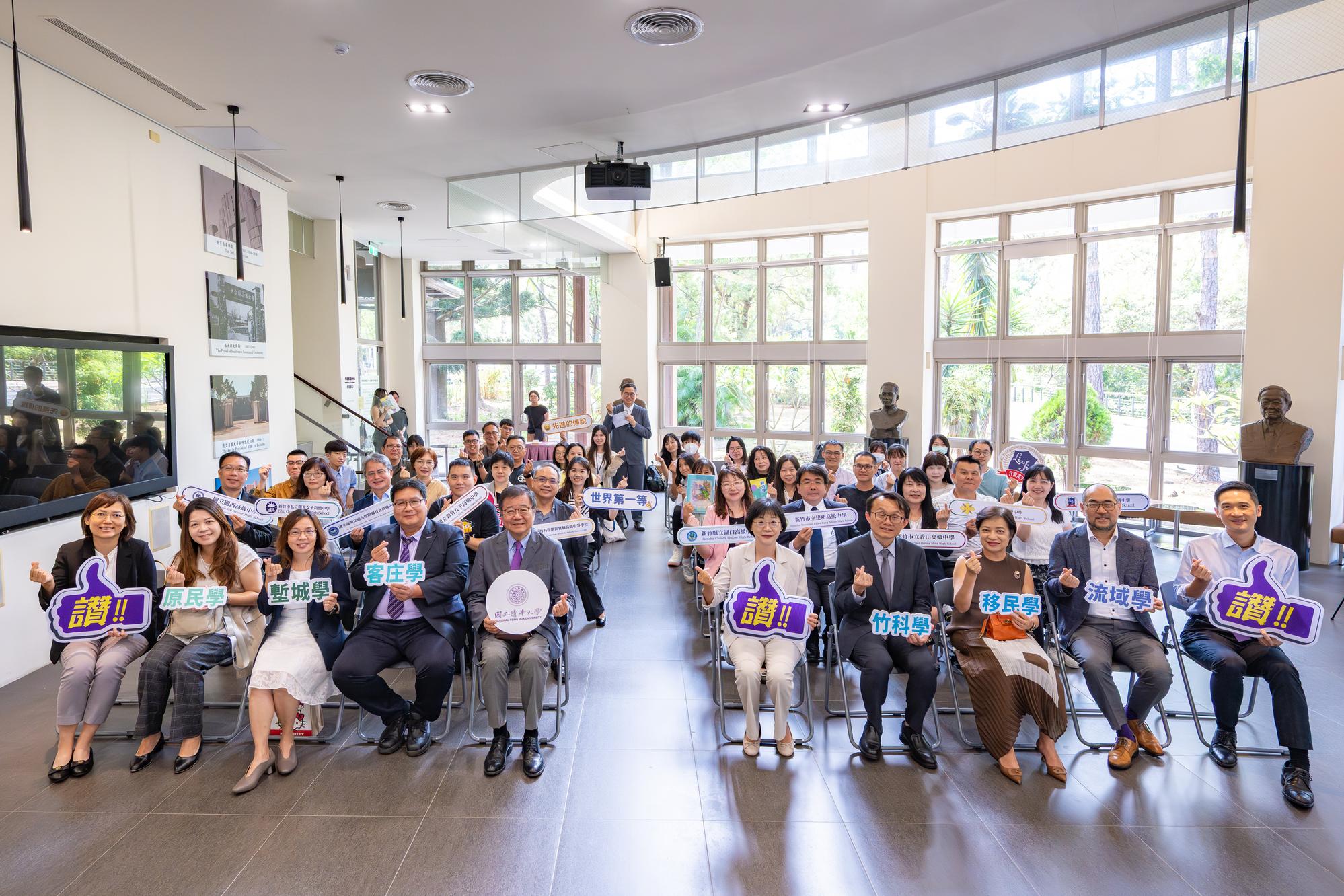
NTHU has partnered with ten high schools in Hsinchu to launch the “Hsinchu Studies” exploratory and practical program. Distinguished guests from the university and the wider community attended the launch event.
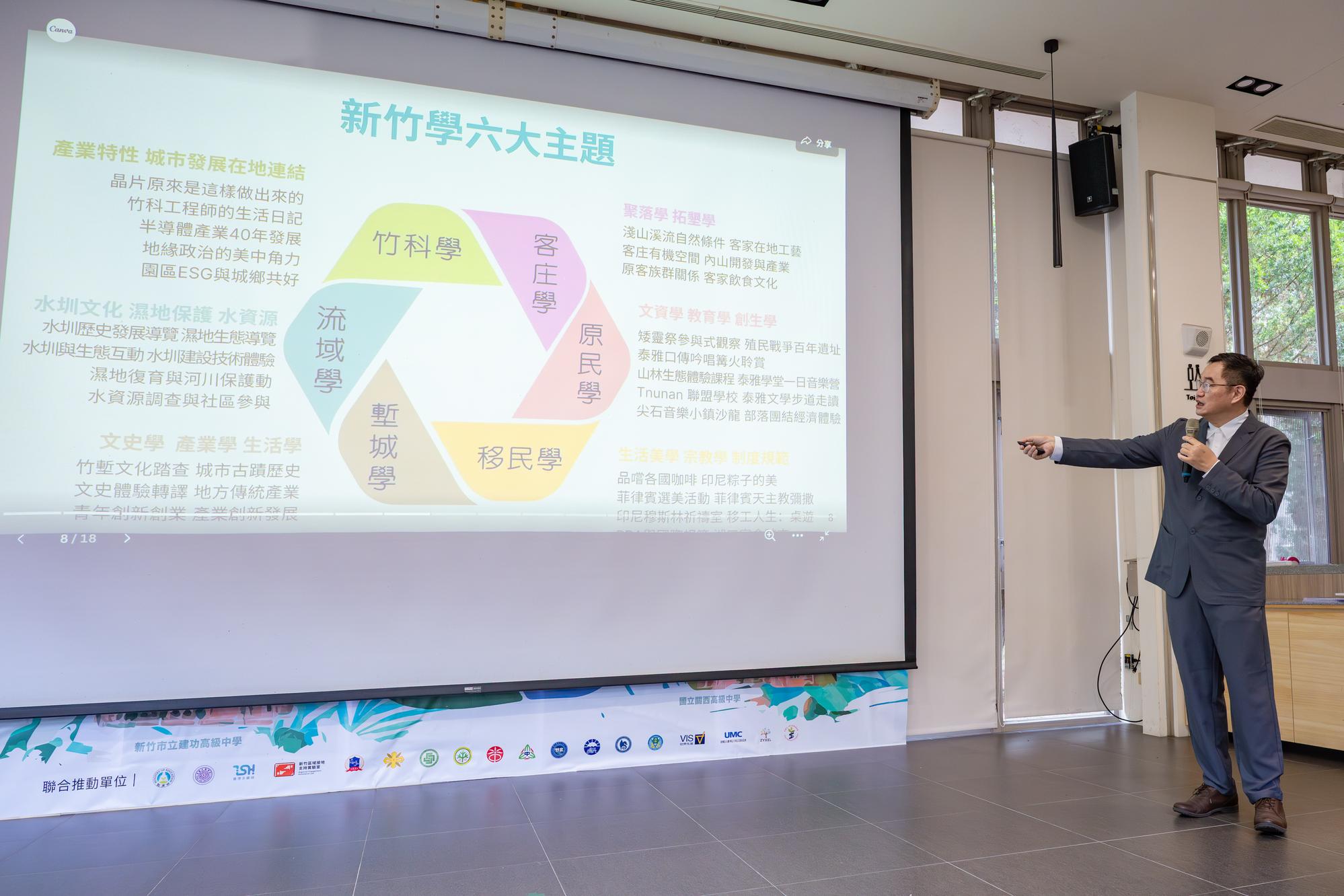
Executive Deputy Director of NTHU's Resilient and Sustainable Development Center and principal investigator of the project, Tien-Chien Lee (李天健), introduced the six thematic modules of the “Hsinchu Studies” program.
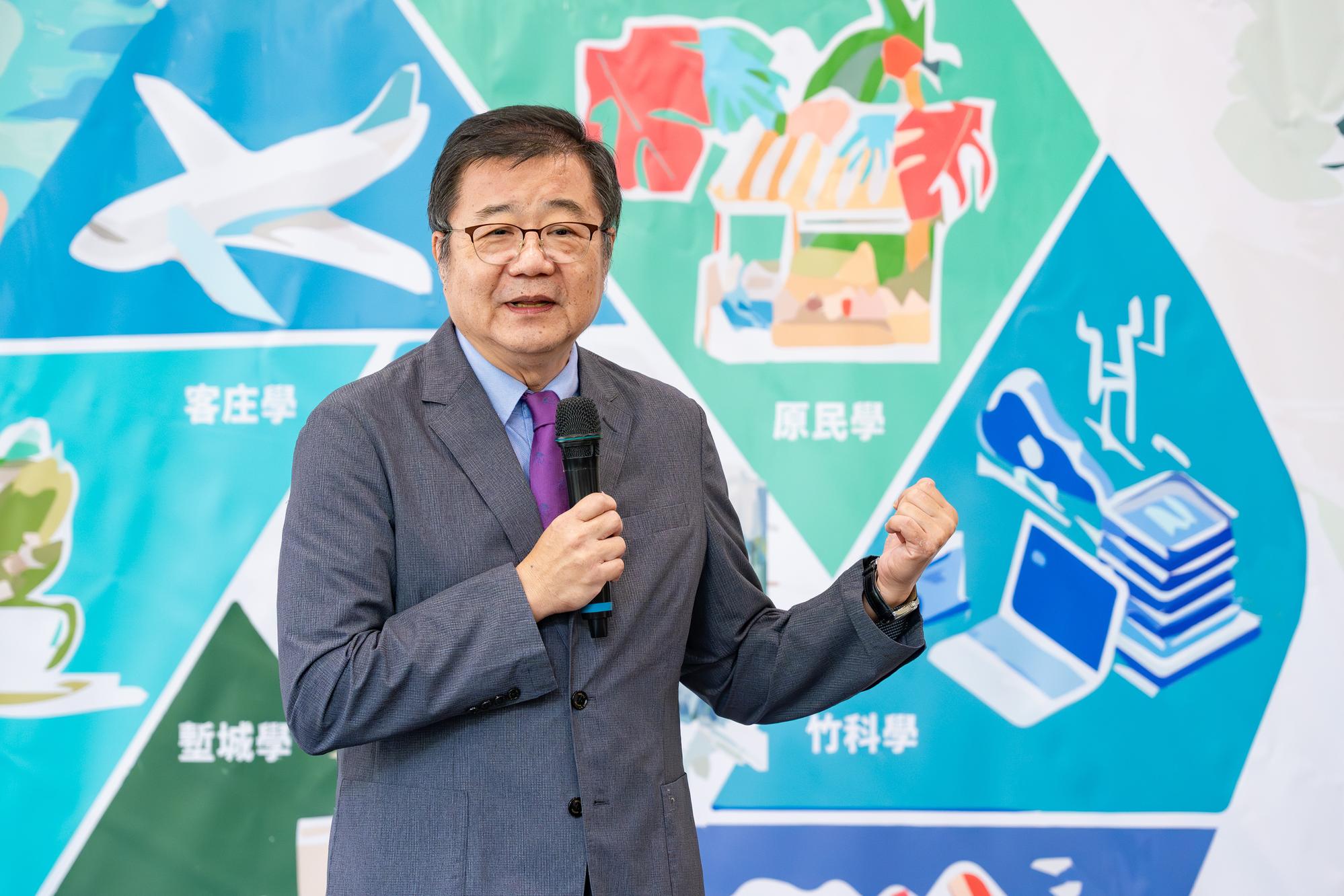
The Vice President of NTHU, Ping-Chiang Lyu (呂平江), noted that “Hsinchu Studies” is more than a set of courses. It represents a significant step in extending the university's social responsibility and sustainability ideals to younger generations.
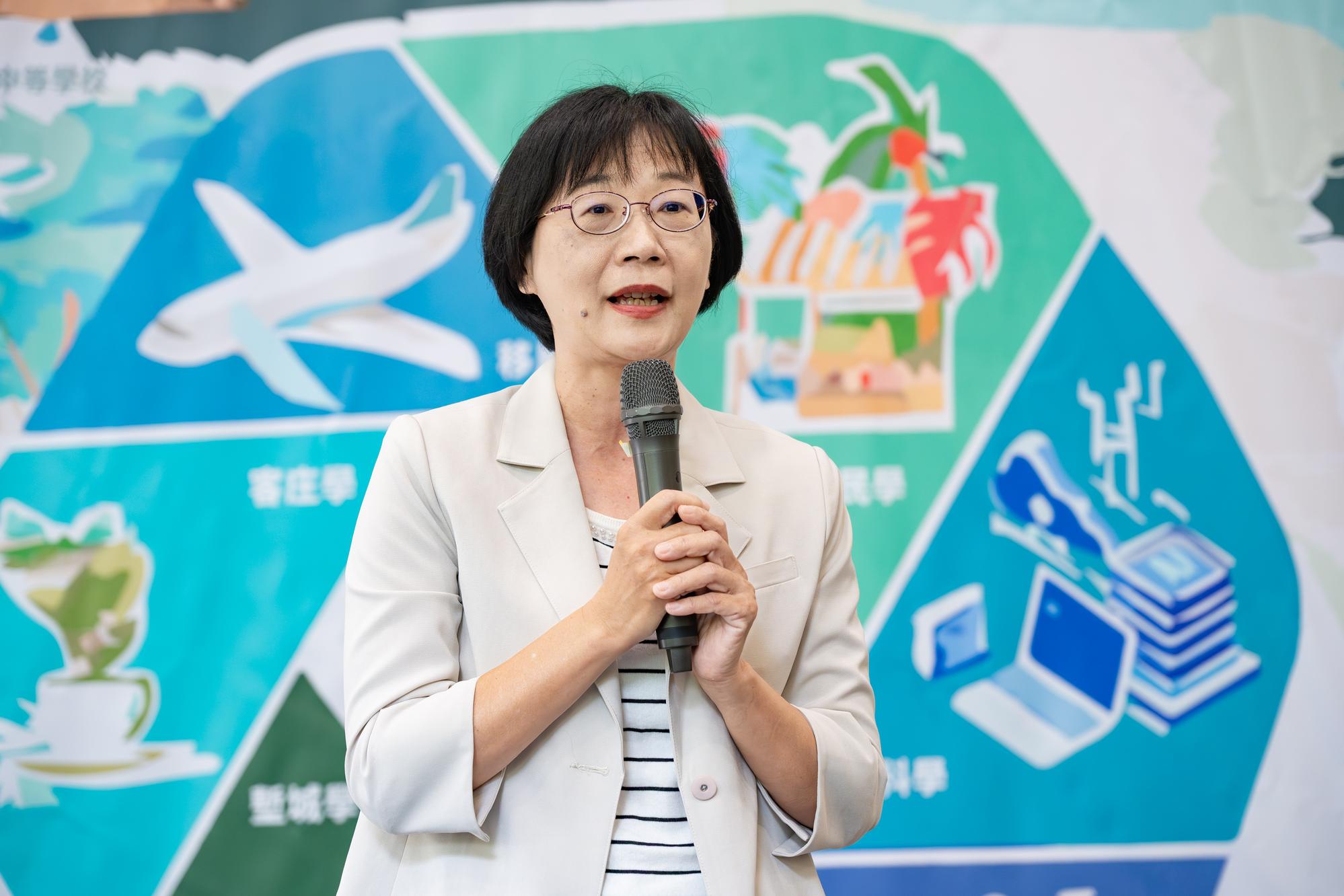
Professional Committee Member at the K-12 Education Administration, Hsiu-Chih Yi (易秀枝), attended the opening ceremony of the “Hsinchu Studies” program and affirmed that NTHU's collaboration with high schools and enterprises helps broaden students' horizons and narrow the urban-rural divide.






